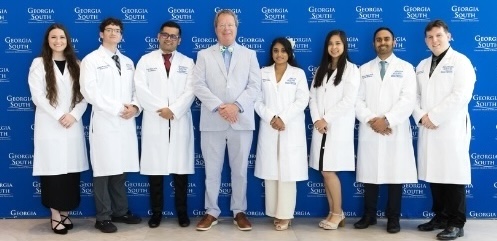Church vs. state back in court
Published 9:15 pm Sunday, April 16, 2017
WASHINGTON (AP) — Justice Neil Gorsuch’s first week on the Supreme Court bench features an important case about the separation of church and state that has its roots on a Midwestern church playground. The outcome could make it easier to use state money to pay for private, religious schooling in many states.
The justices on Wednesday will hear a Missouri church’s challenge to its exclusion from a state program that provides money to use ground-up tires to cushion playgrounds. Missouri is among roughly three dozen states with constitutions that explicitly prohibit using public money to aid a religious institution, an even higher wall separating government and religion than the U.S. Constitution erects.
Trinity Lutheran Church of Columbia, Missouri, says its exclusion is discrimination that violates its religious freedoms under the U.S. Constitution.
If the justices agree, “the decision could have implications far beyond scrap tires and playgrounds,” said Michael Bindas of the Institute for Justice, which is backing the church. “It has the potential to remove one of the last legal clouds hanging over school choice.”
That prospect worries groups of public school teachers and others who oppose vouchers and other forms of public aid for private schooling.
Adding to the intrigue is the long delay between when the Supreme Court agreed to hear Trinity Lutheran’s appeal, a month before Justice Antonin Scalia died in February 2016, and the argument. The span of more than 15 months suggests the justices were concerned they might divide 4-4. Indeed, the case wasn’t scheduled for argument until after President Donald Trump nominated Gorsuch for the seat.
The timing of the argument “heightened our concern that the court has held this case for so long,” said Alice O’Brien, general counsel of the National Education Association, which opposes state aid to private schools.
Missouri’s new governor, Republican Eric Greitens, injected some uncertainty into the high court case on Thursday, when he directed state agencies to allow religious groups and schools to receive taxpayer money for playgrounds and other purposes. The court on Friday asked both the church and the state to tell it whether the governor’s announcement affects the case.
A lawyer for the church said in an interview with The Associated Press that the case would be unaffected because Greitens’ policy change does not resolve the legal issue. But a top aide to state Attorney General Josh Hawley told the AP that state lawyers were evaluating whether the new policy would affect the case.
Should the court decide to go forward, Gorsuch’s votes and opinions in religious liberty cases as a judge on the federal appeals court in Denver would seem to make him more inclined to side with the church, and potentially provide the decisive, tie-breaking vote if the rest of the court is divided between liberals and conservatives, Bindas said.
The case arose from an application the church submitted in 2012 to take part in Missouri’s scrap tire grant program, which reimburses the cost of installing a rubberized playground surface made from recycled tires. The money comes from a fee paid by anyone who buys a new tire. The church’s application to resurface the playground for its preschool and daycare ranked fifth out of 44 applicants.





